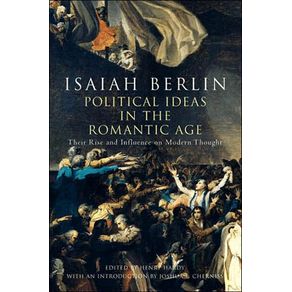It is sometimes thought that the renowned essayist Isaiah Berlin (1909-1997) was incapable of writing a big book. But in fact he developed some of his most important essays--including "Two Concepts of Liberty" and "Historical Inevitability"--from a book-length manuscript that he intended to publish but later set aside. Published here for the first time, Political Ideas in the Romantic Age is the only book in which Berlin lays out in one continuous account most of his key insights about the history of ideas in the period that he made his own--the Romantic age. Distilling his formative early work in the history of ideas, the book also contains much that is not found elsewhere in his writings. The last of Berlin's posthumous books, it is of great interest both for his treatment of the subject and for what it reveals about his intellectual development. Written for a series of lectures at Bryn Mawr College in 1952, and heavily revised and expanded by Berlin afterward, the book argues that the political ideas of the Romantic age are still largely our own--down to the language and metaphors they are expressed in. Vividly expounding the central political ideas of leading European thinkers in the period 1760-1830, including Helvetius, Condorcet, Rousseau, Saint-Simon, Hegel, Schelling, and Fichte, the book is written in Berlin's characteristically accessible style. The book has been carefully prepared by Berlin's longtime editor Henry Hardy, and Joshua L. Cherniss provides an illuminating introduction that sets it in the context of Berlin's life and work.



